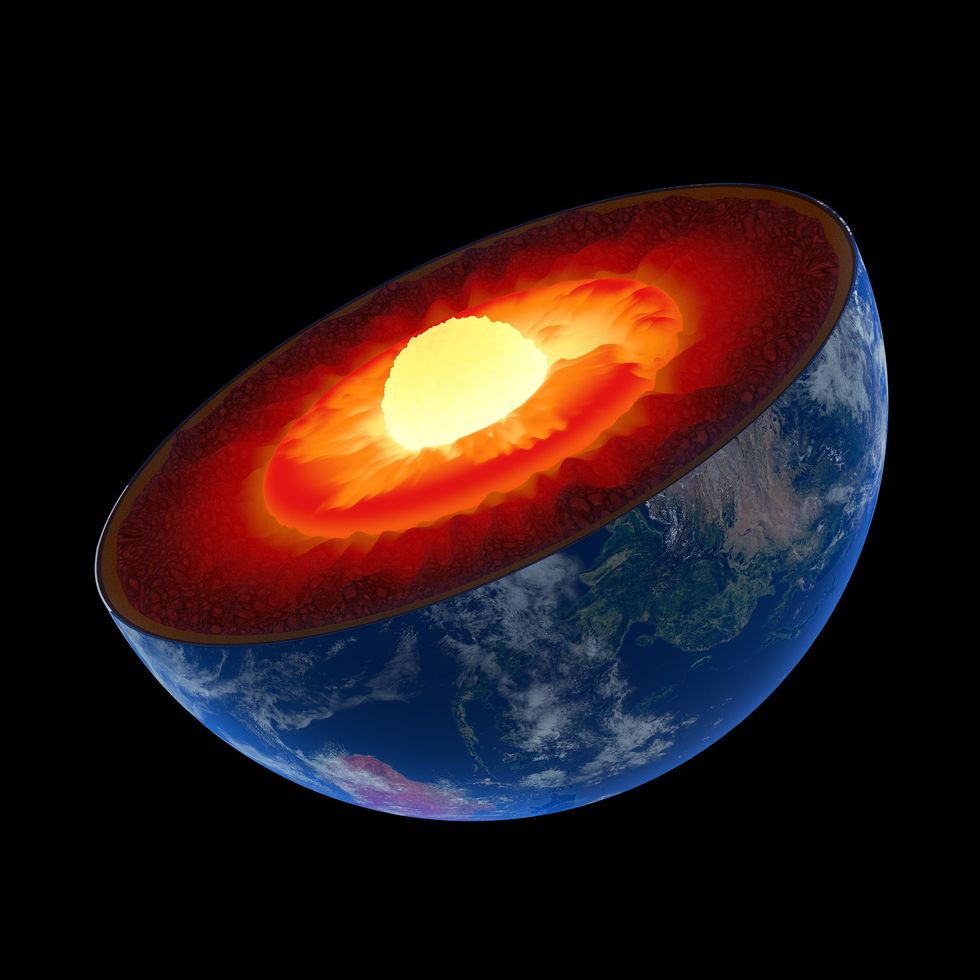Harry Fletcher
Feb 24, 2023
The Earth’s Core Is Cooling Fast
content.jwplatform.com
Scientists have released new findings which point to the Earth having not one, but two cores – and it shows that basically everything we thought we knew about science can be disproven at any time.
Researchers have indicated that there is a second core sitting inside the inner core. According to them, the discovery could also lead us to understand more about how the Earth first became hospitable to life.
Scientists from The Australian National University have released new findings relating to the innermost inner core (IMIC) of Earth and they claim it has a radius of about 400 miles.
Thanh-Son Phạm and Hrvoje Tkalčić are the researchers behind the new project. They made the new discovery after analysing earthquakes that produced 'seismic waves reverberating through the entire planet'.
Sign up for our free Indy100 weekly newsletter
It was these observations that led to new information being revealed and allowed them to 'spot new details about the core'.

They also found that IMIC is a “solid metallic ball” which measures around 800 miles in diameter – around one per cent of the planet’s overall volume.
“It simply means that the iron crystals — iron, which is dominant in the inner core — is probably organized in a different way than in the outer shell of the inner core,” the research reads.
The findings state: “To our knowledge, reverberations from more than two passages are hitherto unreported in the seismological literature."
The pair also added that the IMIC is a ‘time capsule of our planet’s history’.
Hinting that the findings could have further ramifications for the study of the planet’s history, they added that it could represent a 'fossilised record of a significant global event from the past'.
Have your say in our news democracy. Click the upvote icon at the top of the page to help raise this article through the indy100 rankings.
Top 100
The Conversation (0)














